
Monty Python's Fliegender Zirkus are a pair of 45-minute Monty Python German television comedy specials produced by WDR for West German television. The two episodes were respectively first broadcast in January and December 1972 and were shot entirely on film and mostly on location in Bavaria, with the first episode recorded in German and the second recorded in English and then dubbed into German.
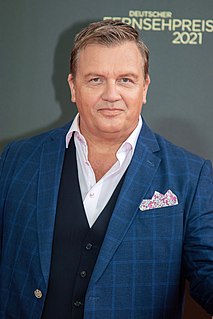
Hans Peter Wilhelm "Hape" Kerkeling is a German comedian, TV presenter, author, and actor.
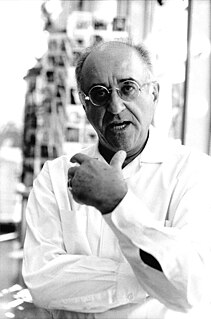
Alfred Franz Maria Biolek was a German entertainer and television producer. Biolek held a PhD in law and was an honorary professor at the Academy of Media Arts Cologne. He received many awards for his work on television which included popular long-running series, and pioneering work for talk shows and cooking shows in the 1970s. He also received awards for his efforts for promoting the culture of food and wine. He supported and founded charities for Africa.
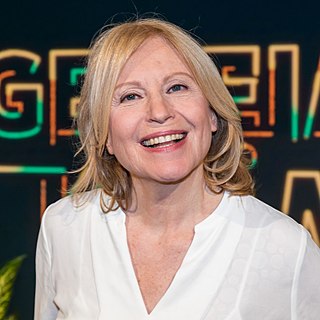
Maren Kroymann is a German actress and singer.
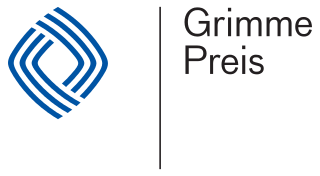
The Grimme-Preis is one of the most prestigious German television awards. It is named after the first general director of Nordwestdeutscher Rundfunk, Adolf Grimme. It has been referred to in Kino magazine as the "German TV Oscar".
Peter Märthesheimer was a German screenwriter, producer and author.

Oliver Michael Dittrich is a German television personality, comedian, actor, and musician.

Klaas Heufer-Umlauf is a German television host, producer, actor and singer. He is best known as part of the duo Joko & Klaas, alongside Joko Winterscheidt.

Dominik Graf is a German film director. He studied film direction at University of Television and Film Munich, from where he graduated in 1975. While he has directed several theatrically released feature films since the 1980s, he more often finds work in television, focussing primarily on the genres police drama, thriller and crime mystery, although he has also made comedies, melodramas, documentaries and essay films. He is an active participant in public discourse about the values of genre film in Germany, through numerous articles, and interviews, some of which have been collected into a book.

Rent Boys is a 2011 German documentary film directed, written and produced by Rosa von Praunheim. The film was shown at the Berlin International Film Festival and the Queer Lisboa International Film Festival in 2011, for example.
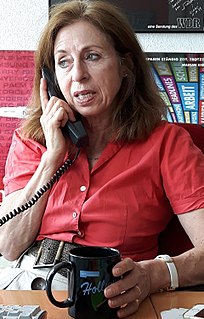
Sabine Rollberg is a German Professor of Artistic Television Formats, Film and Television, as well a former commissioner and head of the editorial department of Arte at the Westdeutscher Rundfunk (WDR). She developed and oversaw an array of diverse TV programmes and has also become internationally known as a dedicated editor and promoter of documentary film. From September 2008 to April 2019 she taught at the Academy of Media Arts Cologne. In 2014, the Grimme Award laureate was appointed to the advisory board of the University of Freiburg and University College Freiburg.
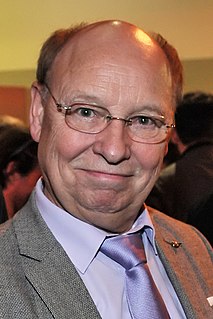
Hans-Joachim Heist is a German actor and comedian.
Peter Rüchel was a German music journalist, producer and founder of the WDR show Rockpalast, which since the mid-1970s has been hosting concerts by national and international bands and solo artists and broadcast them on German and European television.
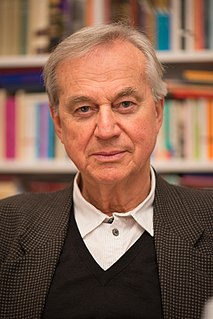
Peter Hamm was a German poet, author, journalist, editor, and literary critic. He wrote several documentaries, including ones about Ingeborg Bachmann and Peter Handke. He wrote for the German weekly newspapers Der Spiegel and Die Zeit, among others. From 1964 to 2002, Hamm worked as contributing editor for culture for the broadcaster Bayerischer Rundfunk. He was also a jury member of literary prizes, and critic for a regular literary club of the Swiss television company Schweizer Fernsehen.
Clash of Futures is a documentary drama series by Jan Peter and Gunnar Dedio. The series is the continuation of 14 - Diaries of the Great War (2014) and tells the personal stories of thirteen people from all over Europe during the interwar period. The series was part of the eponymous project Clash of Futures. In addition to the series, the project included a theatrical and a radio piece, a book, various Europe-wide special exhibitions and a social media campaign. In the anniversary year of the end of the First World War, the eight-part series first aired September 11, 2018 on Arte.

Mai Thi Nguyen-Kim is a German chemist, science communicator, television presenter and YouTuber. In June 2020 she was elected to the senate of the Max Planck Society.
The Telemann Prize is an annual classical music award for special achievements in interpretation, research and cultivation of the life and work of Georg Philipp Telemann.

Gert Scobel is a German journalist, television moderator, author and philosopher.

Annette Dittert is a German author, filmmaker, correspondent, and journalist.
Panorama is the oldest German current affairs television magazine, first aired on 4 June 1961. It is produced by Norddeutscher Rundfunk (NDR), and is aired every third week on Thursdays at 21:45, alternating with Monitor and Kontraste by Das Erste. Anja Reschke has been moderator since 2001. It became popular, with often controversial topics leading to broader discussions and legal consequences.
















